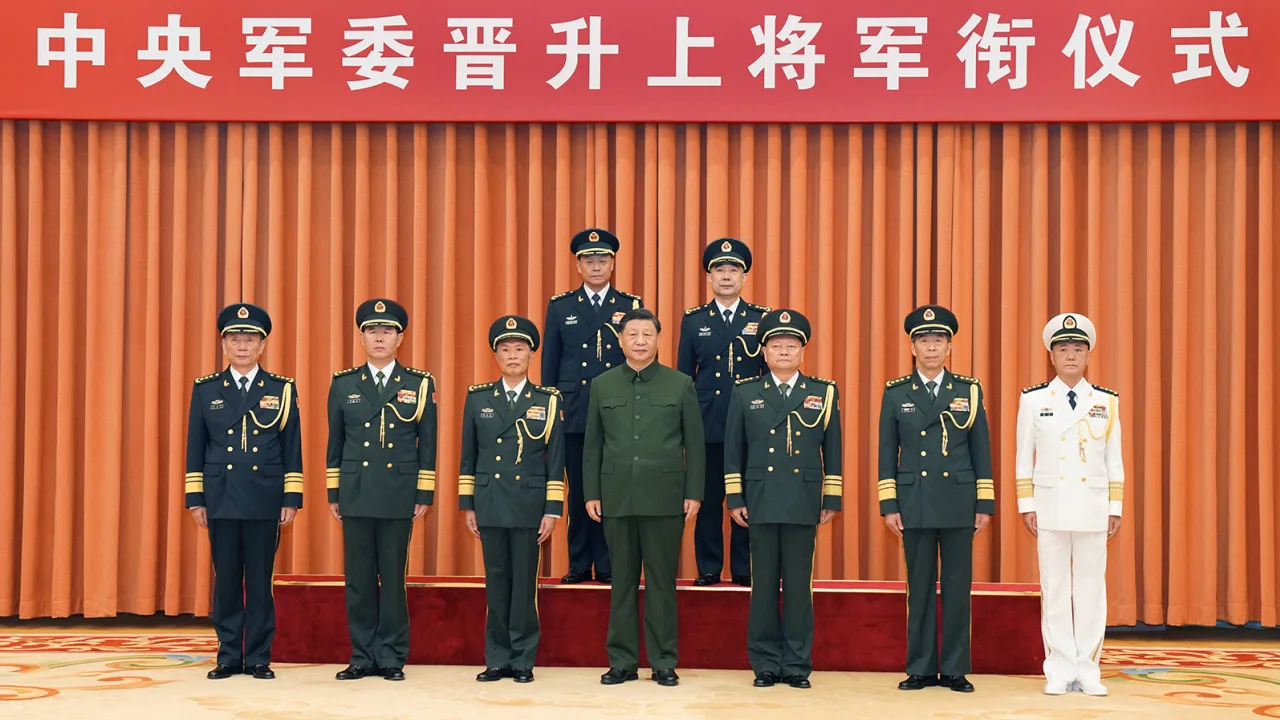In a surprise move, China has appointed new leaders for its People’s Liberation Army Rocket Force, raising questions approximately the internal workings of the navy department answerable for the nation’s nuclear and ballistic missile arsenal. The recent promotion of Wang Houbin as the commander and Xu Xisheng as the political commissar of the Rocket Force by Chinese leader Xi Jinping has garnered attention due to the replacement of previous leaders, Li Yuchao and Xu Zhongbo. Both Wang and Xu come from different military branches, the navy, and the air force, respectively, making this a unique and unexpected development. The reshuffling has fueled speculations about potential concerns from Xi regarding the force’s leadership and the ongoing importance of the branch in China’s geopolitical landscape.
New Leadership Unveiled Amid Rumors and Uncertainty
China’s country media unveiled the surprise brand-new management of the Rocket Force on Monday, naming Wang Houbin as commander and Xu Xisheng because the political commissar. However, no information has been released about their predecessors’ current positions within China’s opaque political system. This unusual replacement of both top figures in the Rocket Force, coupled with the lack of clarity surrounding their status, has sparked rumors and concerns about the reasons behind the shake-up. Experts point out that such a significant change in leadership from outside the branch could indicate possible doubts about the force’s effectiveness and Xi’s desire for loyalty among top military ranks.
Xi Jinping’s Tight Control Over Military Leadership
Xi Jinping, known for his assertive leadership style, has overseen a substantial expansion of China’s navy and has maintained strict manipulate over its ranks when you consider that coming to electricity in 2012. His administration has initiated a vigorous anti-corruption campaign, investigating both current and former high-ranking military leaders. This approach has been aimed at consolidating loyalty to the Communist Party’s core and reinforcing Xi’s authority. However, the recent leadership changes in the military, coupled with the sudden ousting of former foreign minister Qin Gang, have caused hypothesis approximately Xi’s reasons and the shortage of transparency in China’s political system.
Unconventional Appointments Signal Loyalty Over Experience
The newly appointed leaders of the Rocket Force, Wang and Xu formerly held deputy positions in different army branches. Wang turned into the previous deputy commander of the PLA Navy, at the same time. Such appointments are not typical, and the decision to appoint outsiders to lead the Rocket Force has raised eyebrows among analysts. These surprise moves, combined with the disappearance of the previous leaders from public view for several months, have further fueled uncertainty and curiosity about the reasons behind the shake-up.
Growing Chinese Nuclear Force and the Role of the Rocket Force
Recent evidence points to China’s expanding nuclear force, with the construction of hundreds of intercontinental ballistic missile silos in its deserts. The US Defense Department predicts significant growth in China’s nuclear warhead arsenal in the coming decade, potentially reaching 1,500 warheads by 2035. As China continues to strengthen its nuclear capabilities, the role of the Rocket Force becomes even more critical. However, the lack of transparency surrounding the leadership changes has raised concerns about the need for international communication and high-level military dialogues, particularly with the United States, to ensure strategic stability and prevent misperceptions.
Conclusion
China’s surprise shake-up of the leadership in its People’s Liberation Army Rocket Force has brought attention to the inner workings of the nation’s military apparatus. The appointments of new leaders from outside the branch, coupled with the absence of information about their predecessors’ current positions, have led to speculations about potential concerns from Chinese leader Xi Jinping. As China continues to expand its nuclear capabilities, ensuring transparency and open communication with the international community, especially with the United States, will be crucial to maintaining strategic stability and preventing misunderstandings that could have far-reaching consequences.
